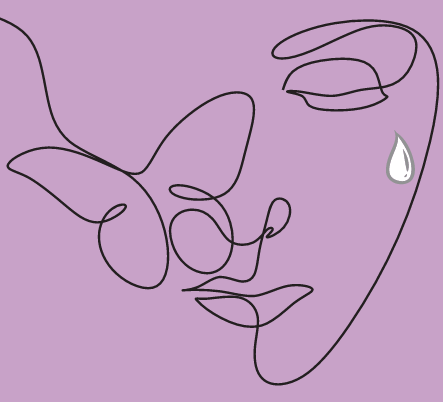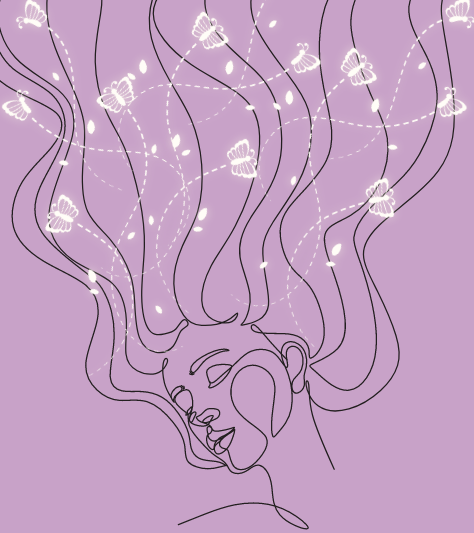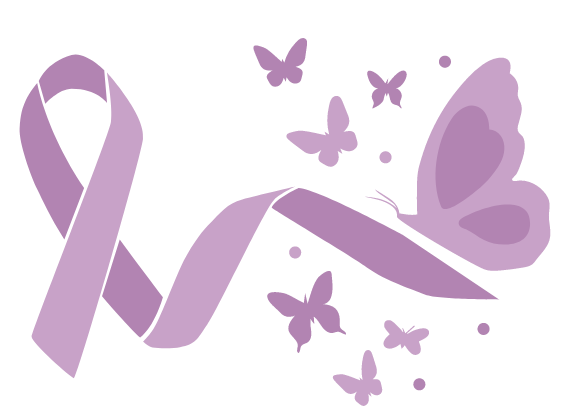In a previous post, I shared my ongoing health struggles and the unconscious denial regarding a potential eating disorder connection. However, it wasn’t until a pivotal appointment with my endocrinologist that I truly confronted this truth. This revelation on February 27th, coinciding with National Eating Disorder Awareness Week, signifies my shift from eating disorder denial to discovery and highlights the importance of raising awareness and seeking support on the path to healing.
The Journey from Denial to Discovery
My complex journey with food and exercise has evolved over eight years, intertwining with recent health challenges. However, the term “recent” fails to capture the depth of my struggles, as my symptoms started more than two years ago. Throughout this time, I’ve consulted with at least six healthcare providers who often dismissed my symptoms. As a female, their initial assumption was possible pregnancy. When ruled out, they defaulted to birth control as the band-aid solution, without addressing the underlying issues. Despite numerous tests and thousands of dollars spent, clarity remained elusive. As a result, I felt invalidated with the recurring message that everything appeared “normal.”
Masking Struggles in Denial

For over two years, I’ve maintained a façade of normalcy. I graduated college early, secured a full-time job, and adhered to a rigid daily routine. Mornings began at 5:00 a.m. with a workout, serving as my only momentum to keep moving forward. I spent the days confined to my fluorescent-lit cubicle. Evenings offered solace in writing, an outlet for my internal turmoil. This routine, though seemingly structured, was a form of escapism. Once more, food and exercise served as coping mechanisms, providing a false sense of control.
While appearing disciplined and accomplished, this external mask hid internal shame and suffering kept in silence and isolation. Fearful of exposing the “real” me, I remained entrapped in denial, unwilling to confront the depths of my struggles. However, an appointment with my endocrinologist brought these intangible battles to light through medical testing.
Discovery Amid Awareness

The discovery of the connection between my health issues and disordered eating behaviors coincided with National Eating Disorder Awareness Week. This symbolic alignment highlighted a significant breakthrough in my own journey with food and exercise and amplified the broader message of raising eating disorder awareness.
During the follow-up appointment with my endocrinologist, she noted that the MRI revealed no abnormalities. However, there was still a disconnect with my pituitary gland, evidenced by several hormonal imbalances. She said that these hormonal disruptions commonly stem from eating disorders and excessive exercise. It was in that moment that I confronted a truth I had masked in denial for so long.
Acknowledging Denial and Confronting the Truth

Tearfully, I confessed to my eight-year, ongoing struggles with food and exercise. These battles, ingrained since adolescence, encompassed cycles of severe calorie restriction, binge eating, compulsive exercise, and rigid adherence to “clean” eating. This raw, vulnerable moment marked the beginning of acknowledging my denial.
My endocrinologist nodded in understanding as she documented my revelations. In a confident tone, she referenced the term “eating disorder” as the underlying issue. I told her that was my fear and explained that, while I knew my relationship with food and exercise wasn’t normal, I never admitted I may need help. My endocrinologist said that these labs and tests were good because they gave me insight into myself, paving the path to healing.
The Path to Healing

Following this pivotal revelation, my endocrinologist stressed the importance of seeking help from an eating disorder counselor or psychiatrist. She emphasized the need to obtain a diagnosis and work on recovering. Voicing my concerns about the ingrained nature of these behaviors, she highlighted the common occurrence of delayed diagnoses for eating disorders due to a lack of awareness from both patients and healthcare providers.
She said she was going to send a message to my OBGYN, informing her of our mutual decision that I pursue treatment. Additionally, she encouraged me to take proactive steps by seeking therapy on my own and confiding in someone I trust about my struggles.
Finally, my endocrinologist mentioned scheduling a follow-up appointment in a year, despite normal findings. When she said everything was normal from an endocrine perspective, I said, “It’s my mind.” She disagreed, likening my condition to endocrine disorders, like diabetes. By dispelling self-blame, she affirmed that my struggles are legitimate medical concerns requiring appropriate treatment. Validating my experiences, she emphasized the prevalence of eating disorders in young women and reassured me that recovery is possible.
Obstacles Hindering Support
Despite this clarity and acknowledgement of needing help, numerous obstacles remain. Internal conflicts, societal stigma, diagnostic barriers, and financial hurdles all hinder my ability to seek support.

Internal Conflicts
The newfound awareness of my condition doesn’t erase the feeling of invalidation or fear of misunderstanding. My disordered eating behaviors don’t fit neatly within the confines of a specific diagnosis, fueling my reluctance to share my experiences and reach out for help. While I’ve considered confiding in my family, apprehension overwhelms me. I fear altering their perception of me as I remove the masks of normalcy and denial that I’ve meticulously maintained for years. Moreover, I don’t feel like this is something they would understand.
Societal Stigma
The pervasive stigma surrounding eating disorders perpetuates misconceptions, discouraging individuals like me from seeking support. Society’s narrow-minded views, fueled by an unhealthy obsession with thinness, undermine the severity of eating disorders. The beauty and media industries exacerbate this issue, capitalizing on our insecurities in the name of “health.” Their relentless pursuit of an unattainable ideal distorts our self-image, contributing to body dysmorphia and low self-esteem. By normalizing disordered eating and exercise behaviors, society blurs the line between health and harm, leaving me and others questioning the validity of our struggles.
Additionally, society often claims eating disorders are a choice or just a phase. Navigating an eight-year, evolving battle with this illness, I know firsthand eating disorders are not fleeting issues one can easily overcome. Moreover, society frequently associates eating disorders with vanity or “attention-seeking” behaviors. As someone who has silently endured these struggles without seeking help or receiving a diagnosis, I understand the profound isolation and internalized shame that accompanies eating disorders. These misconceptions contribute to suffering in silence, amplifying the challenges individuals face in seeking support and understanding.
Diagnostic Barriers
The diagnostic criteria for eating disorders, often centered around physical measurements, like BMI, fail to capture the complexity of these conditions. After all, they are eating disorders, not weight disorders. Numbers on the scale cannot quantify mental health struggles. Additionally, many, including myself, do not fit neatly into any single diagnostic box. We may demonstrate behaviors of various eating disorders simultaneously or at different times, defying easy classification. Diagnosis must transcend the rigid confines of checkboxes or a healthcare provider’s assessment of severity specifiers. No one knows the depth of my struggles better than me.
Financial Hurdles
Additionally, the exorbitant cost of treatment, complicated by health insurance limitations, presents another significant hurdle. Caught in a cruel paradox, I must work to afford health insurance, while also needing time and space to recover. The daunting prospect of accruing substantial debt for treatment amplifies the existing mental anguish caused by my struggles.
With thousands in medical bills, I confront the harsh reality of navigating a healthcare system that profits from our illness. This glaring systemic failure highlights society’s collective neglect of those in dire need of mental health care.
The Ongoing Journey of Self-Discovery and Healing
My journey to this point illuminates the critical importance of raising eating disorder awareness, voicing mental health struggles, and seeking support. Additionally, this journey of self-discovery has revealed the intricate link between my mental and physical health.

For too long, I’ve concealed my struggles behind a façade of normalcy, sacrificing my own well-being to appease society. While I cannot definitively claim that I’m on a “journey to recovery,” given the persisting obstacles, I recognize the importance of breaking the silence surrounding eating disorders and mental health challenges. Likewise, I understand the detriment of self-isolation and the importance of community and support.
Perhaps this blog has inadvertently become a platform for reaching out and a prelude to understanding the depth of my struggles. Similarly, I aspire to offer hope and support to others facing similar battles. May my story be your motivation to seek help now, rather than eight years later. To anyone reading this: I see you; I acknowledge your struggles, and I stand with you. In a narrow-minded society, let’s unite and affirm our validity and worthiness of support, recovery, and healing.
Raising Awareness and Discovering Healing
By sharing my story, I hope to shine a light on the harsh realities of eating disorders and mental health struggles, challenge societal stigmas, and foster understanding. Together, let us reshape the narrative—recognizing that mental health is an integral part of overall well-being, and eating disorders are serious illnesses deserving of empathy and support. Our struggles do not make us weak; rather, they are parts of our shared humanity.
It’s time for society to restore its compassion and empathy, setting us free from the cages of shame and isolation. We deserve acknowledgement for our authentic selves, not the masks we wear to conform to societal norms. Let’s stop undermining ourselves and unite as allies in advocacy, dismantling barriers to support and offering understanding. By recognizing the validity of our pain and struggles, we can raise awareness, restore compassion, and discover the path to healing.




Pingback: Blossoming Anew: Renewal and Rebirth - Breanna Williams
Pingback: Mental and Physical Wellness: Resources & Support - Breanna Williams